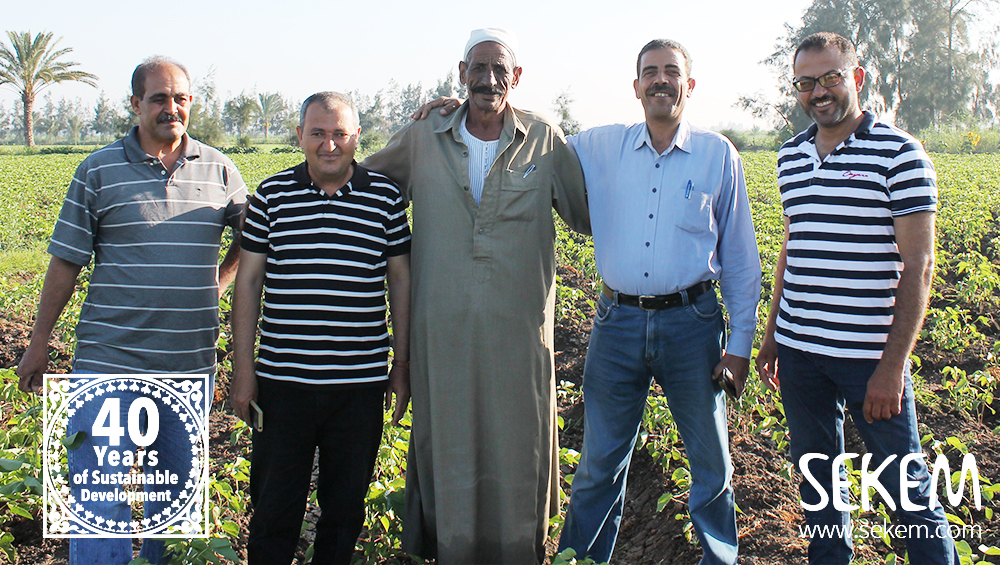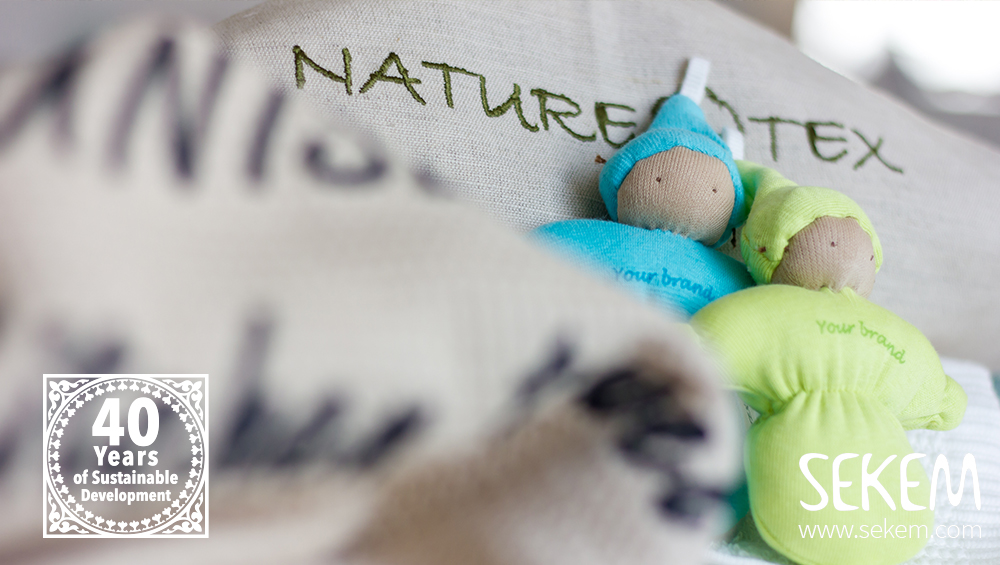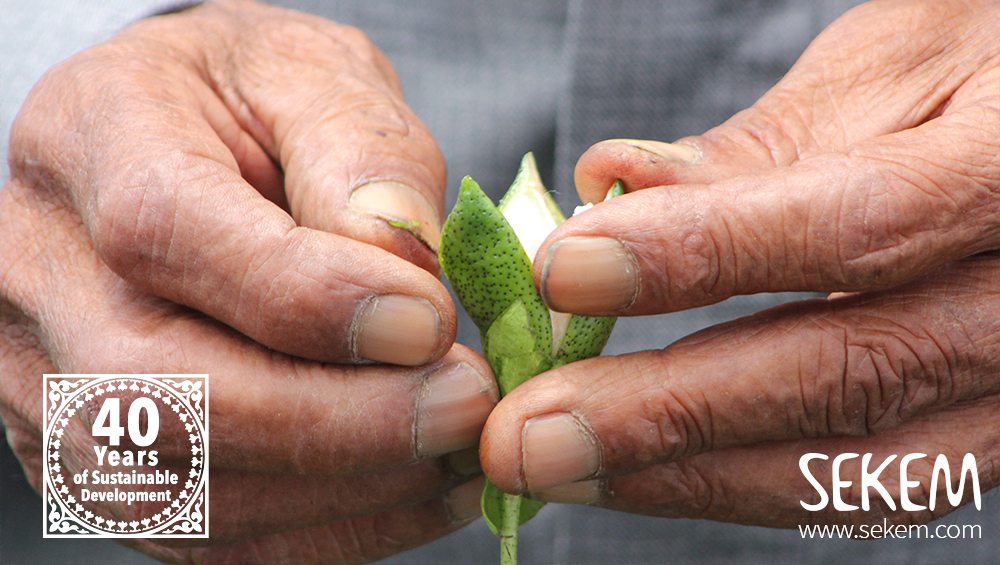SEKEM had not only been pioneering Organic cotton in Egypt, the initiative also guarantees a closed value chain, which is quite unique worldwide. Hence, SEKEM can determine the conditions of its Organic cotton production and marketing from the farmer to the end-consumer. SEKEM has this concept deeply based in its vision of sustainable development. Especially when it comes to the Egyptian cotton, SEKEM proactively understands the impact of such a crop ecologically and economically.
The Egyptian economy has been facing drastic changes for a long time, especially during the post-revolutionary years. The year 2016, in particular, was a turning point, when three devaluations hit the Egyptian Pound and led to high prices in the local market and high import costs as well. That’s why it became imperative for the concerned parties from the Egyptian government, the public and the private sectors to engage together in export promotion.
However, the year 2016 has been an evidence for a successful contribution between these concerned parties, who could create a new starting point for the cotton crop as one of Egypt’s strategic crops: Egypt’s cotton exports increased by 63.9% in one year, according to the statement reported by the Central Agency for Public Mobilisation and Statistics. Despite the positive effect of cotton in the country’s export strategy, the crop is still subjected to high amounts of chemicals and pesticides in some areas in Egypt.
Pioneers of Organic Cotton in Egypt
SEKEM contributes with its sustainable farming practices to the government’s cotton strategy since the early 1900s: Dr. Ibrahim Abouleish, the founder of SEKEM, succeeded with his research team in proving efficient cotton cultivation methods without the use of chemicals or pesticides – this led to a constitutional amendment in 1993, reducing the pesticides use on cotton fields by almost 90%.
SEKEM cooperates with roughly 800 contracted farmers, who apply Biodynamic and Organic procedures all over Egypt. This year, 360 farmers of them cultivate more than 370 Hectares (915 feddans) of Egypt’s lands with Organic cotton crops. Most of their farms are located in the governorates Kafr El-sheikh, Fayoum, Beheira and Damietta. In cooperation with the Egyptian Bio-Dynamic Association (EBDA), SEKEM is looking forward to getting around 1900 tons of Organic cotton as a final yield during this year.
Because farmers deserve more
“We are glad to find consultancy and support from the professional agricultural engineers of the EBDA along all the stages of the organic farming process,” says Al-Sddiq Rashad, the head of 20 contracted farmers in Damietta governorate, who recently joined SEKEMs cotton supply chain. He appreciates SEKEMs support especially as he was involved to Organic cotton production before with another company which didn’t bring any benefits but more problems. “There was no support from the involved parties and we didn’t have any experiences with this special kind of cultivation back then. That was very disappointing. With SEKEM and the EBDA, we feel a collaborative spirit and as part of the community. Hence, we are optimistic and looking forward to a succeeding Organic cotton crop this year,” tells the new SEKEM agricultural engineer.

Over 1,700 employees in all SEKEMs entities as well as SEKEMs contracted farmers receive fair shares along SEKEMs supply chain. Confirmed by a 2015 published Impact Study coordinated by Oikocredit International, SEKEMs contracted farmers benefit from higher salaries than their conventional counterparts. Additionally, SEKEM ensures them guaranteed markets, reliable prices and better opportunities for social and cultural development. SEKEM calls that social model: “Economy of Love”.
Organic textiles from SEKEM to the world
“It was Dr. Abouleish’s vision to extend the chain of SEKEMs Organic cotton production to manufacturing healthy textiles, especially for kids,” says Konstanze Abouleish, Commercial Manager of NatureTex, SEKEMs Company for Organic cotton textiles and dolls production. In 1993, NatureTex was founded with only three machines and six employees. “We have had many supporters and friends since the very beginning for instance, Under the Nile from the United States and the German companies Alnatura and dm-Drogeriemarkt,” Konstanze recounts. Hence, NatureTex could constantly grow. Today, the factory has 80 machines and employs more than 200 co-workers.
NatureTex is also renowned with its unique-shaped dolls. “A long time ago, Dr. Abouleish asked me to learn how to make handmade dolls from Organic cotton cloth,” says Inge Marienfeld, who joined SEKEM in the late 1980’s as a nurse and assisted in building SEKEMs Medical Center. “He once brought a book with him from Germany that explained different procedures of dolls making. I was a bit surprised when he first asked me of all people. But he was right, I can live my artistic vein during that kind of work”, the longstanding SEKEM co-worker recalls. Inge Marienfeld is now 83 years old and still very much involved in the dolls production by initiating almost all new developments.

NatureTex has successfully built a wide network in the global market and competes there with more than 85% of its daily production. Its high-quality Organic cotton products are either marketed with “NatureTex”, “Cotton People Organic”, “Organic Baby”, or under private labels such as “People Wear Organic” or “Under The Nile”.
SEKEMs closed value chain is unique
SEKEM is not only fostering sustainable agriculture in Egypt since 1977, but also Egypt’s pioneer for Organic Cotton. Especially unique is the closed value chain that SEKEM guarantees all involved parties. Starting from the farmer till the end consumer, all conditions of the whole economic process can be determined. Such a sustainable and transparent value chain in the cotton market is not only unique in Egypt but also very rare worldwide. But this is exactly what SEKEM is striving for and what is already stated in its vision from 1977: “Conducting all economic activity in accordance with ecological and ethical principles.” This is the recipe for developing a sustainable economy, which is able to face and solve the challenges of the century.
Christine Arlt/Noha Hussein
Organic Cotton as a Sustainable Alternative
Economy of Love: Interview on the Meaning of Fairtrade in Egypt and SEKEM
SDG 2: Reshaping Agriculture

